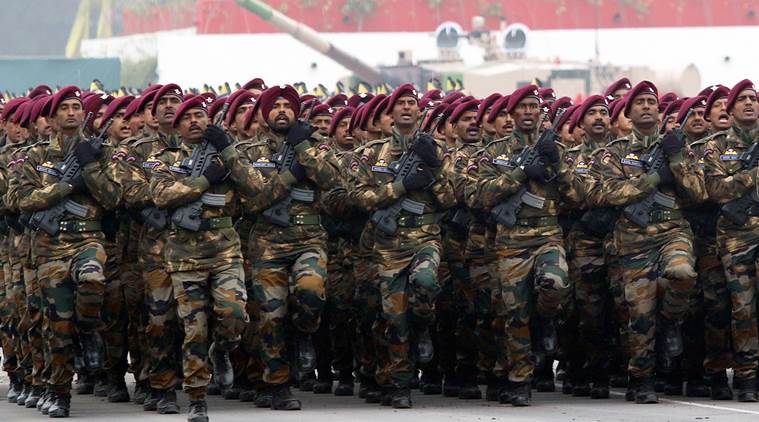The panel, in its report, has criticised the defence services for passing such orders in, essentially, what are private matrimonial disputes. –
The Army, Navy and the Air Force Acts provide that the competent authority can impose a cut upto 33 per cent on pay and allowances which can be paid to the wife as maintenance on her application.
A panel of experts of the Ministry of Defence (MoD) has slammed the defence services for passing orders granting maintenance allowance to wives of military personnel from their salaries, especially in Army, without due investigation and scrutiny.
The panel, in its report, has criticised the defence services for passing such orders in, essentially, what are private matrimonial disputes. The Army, Navy and the Air Force Acts provide that the competent authority can impose a cut upto 33 per cent on pay and allowances which can be paid to the wife as maintenance on her application. With growing matrimonial disputes, the number of such applications has increased in the last few years especially with the Army granting maintenance to the spouses on almost all applications through non-speaking orders without providing reasons.
An expert committee constituted by the Defence Minister on litigation has however observed that the exceptional provisions are being invoked in a routine manner by defence authorities. It has also found that the system does not have the wherewithal or ability to examine the veracity or truthfulness of the allegations and counter-allegations of both parties which is basically a matter of evidence that can only be weighed and dealt with by civil courts under law legislated for this specific purpose. The panel has said that this exercise can only be carried out under Section 125 of the Criminal Procedure Code and the relevant Marriage Acts, rather than the defence services getting into what may fundamentally be a civil or private dispute between a husband and his wife. The panel has also observed that even the Army HQ has expressed concern on the issue and that maintenance is meant to tide over a difficult financial situation and not to lead life on someone else’s expense. It has recorded that the award of maintenance results in grave civil consequences for an individual wherein a cut is imposed on his pay and should be taken as a serious matter and not routine. Moreover, it may not be initiated on the fact whether the spouse is working or not but whether she has the capacity to work or not, further adding that a situation cannot be allowed to prevail wherein an otherwise qualified/educated spouse stops working or refuses to take up a job in order to claim maintenance. The Panel has stated that though defence personnel have a bounden duty to maintain their families, such issues should be left to Courts to decide based on evidence. Surprised at the acceptance of an unusually high number of applications by the Army, the committee has questioned, “does it mean that it was found that out of the total applications received, such a high percentage of officers were found wanting in their familial and marital obligations? If yes, then what were the tools available to reach that conclusion?” There has been a rise of litigation on the subject in the past. Recently, a Lt Col had averred that his wife held a Doctorate and also working in a real estate firm but still was awarded maintenance by the Army. Another officer had stated that his wife had a degree of MSc as well as BEd and was earning a huge amount from tuitions and he had elderly parents to look after but still deduction of arrears of maintenance had resulted in disbursement of more than Rs 30,000 to the wife per month while he was being disbursed a amount of just Rs 6000. Another serving Colonel had stated that was being expected put his earnings at the disposal of his wife who was fully qualified and competent to work and was actually working.
